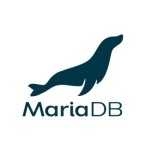SQL Server is very useful in managing databases for various applications. It is easy to use, making it accessible even for those with limited skills. SQL is a preferred choice for handling limited data. Additionally, Microsoft provides excellent support for SQL Server.
We are using in-house ERP. Currently, we are using SQL for different projects, like surveys and documentation. The data are stored in SQL, which is our main database.
SQL Server is very easy to use. A person with limited skill also can handle the software easily. The retrieving time of the data is very fast. You don't require any higher configuration machine for that. If you have very limited resources, you can easily manage.
There is a limitation in the SQL. There are around 4GB restrictions, which Microsoft needs to work on.
If your data volume is higher, your server performance may suffer. Microsoft needs to focus on improving stability in such scenarios.
If the dataset is limited, the performance is good. If it involves bulk data, then the speed is slow.
The number of users impacts the solution’s scalability.
100-500 users are using this solution.
Customer support is fast and knowledgeable. Whenever we raise the ticket, they reply within two hours.
The initial setup is straightforward. It is not lengthy. It's a simple flow chart. There is no complexity in the application. It will take half an hour to deploy if you have the right hardware resources.
The first step is gathering the developers’ prerequisites, which depend on the application. We consider the projected data volume for the last ten years, which informs our capacity planning. Based on that, we recommend virtualization.
We have two kinds of licenses for SQL Server: perpetual and subscription-based. We already have the perpetual license. The subscription-based license is renewed every year. The perpetual license was obtained previously, while the subscription-based license is a newer solution we've deployed. We have both perpetual and subscription-based licenses. Perpetual license lacks support.
SQL Server is very secure in terms of login and data protection. Security largely depends on the programmer’s implementation. When data is inputted, it is encrypted to prevent unauthorized access. So, laypeople cannot understand the content of the data.
If your organization needs secure data management or is considering migrating your systems to a virtualization platform, I strongly recommend utilizing Microsoft products. They are user-friendly and require no specialized skill level.
Microsoft has developed the software to be used for any major and smaller applications. Therefore, its integration is very good in terms of the specifications provided.
Overall, I rate the solution a nine out of ten.





















